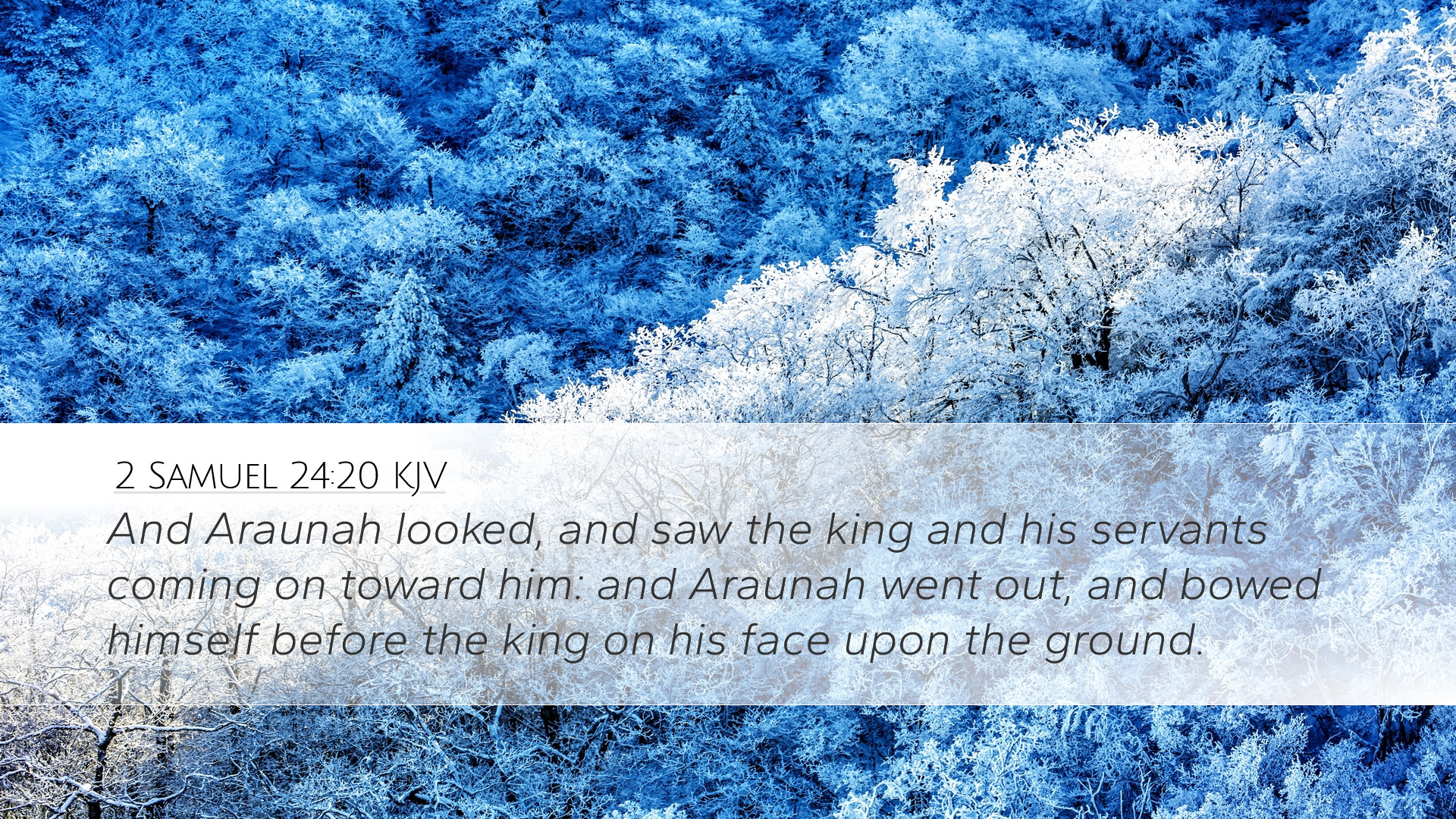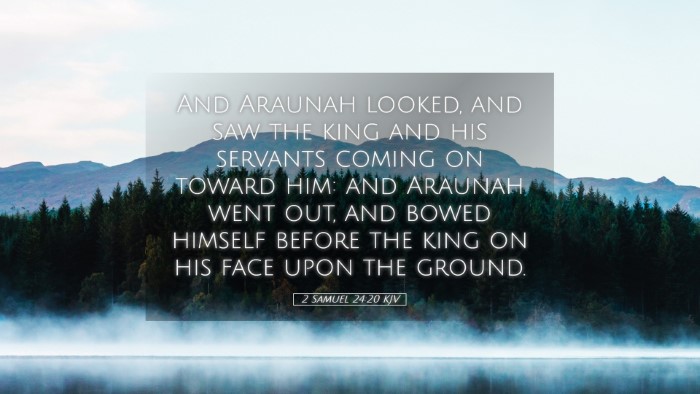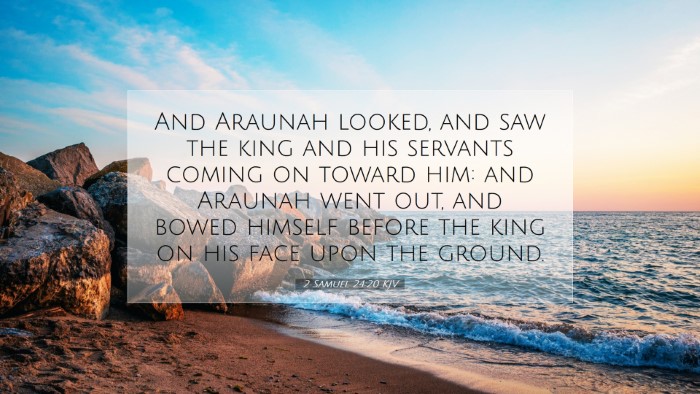Commentary on 2 Samuel 24:20
In the verse 2 Samuel 24:20, we find significant themes that resonate deeply within the contexts of biblical history, theology, and personal reflection. This passage illustrates a critical moment in King David's reign, where the choices he made carry profound implications. Various esteemed commentators provide rich insights into this verse, shedding light on its theological and practical application. Below, we summarize these insights for consideration by pastors, students, theologians, and scholars.
Contextual Background
The scene depicted in 2 Samuel 24 takes place towards the end of King David’s reign. Following a severe plague striking Israel, David is confronted with the repercussions of his actions, leading to a divine call for resolution. The verse leads us to understand the significance of repentance and divine mercy.
Insights from Public Domain Commentaries
Matthew Henry
Matthew Henry highlights the role of David's repentance and humility in this passage.
- Divine Judgment: Henry points out that David's census, intended to count the army, reflects his reliance on military strength rather than on God’s providence.
- Gracious Response: He emphasizes the mercy of God, who provides a way for David to avert judgment through an offering.
- Personal Integrity: Henry notes the importance of David's willingness to accept personal responsibility, as seen in his interactions during this moment.
- Relationship with God: The passage illustrates the necessity of a direct relationship with God, supporting the idea that true dependence lies beyond mere numbers or earthly assurances.
Albert Barnes
Albert Barnes offers a perspective centered around the significance of sacrifice and ownership.
- Genuine Sacrifice: Barnes underlines the concept that David would not offer to God that which costs him nothing. His intent to buy the threshing floor demonstrates his understanding of genuine sacrifice.
- Types of Christ: He suggests that this act foreshadows Christ’s ultimate sacrifice, marked by an unblemished offering freely given for humanity.
- God's Desires: In discussing the offerings, Barnes emphasizes that God desires the heart and genuine worship over material offerings.
- Transformation: The events encourage readers to reflect on personal transformation through the act of true repentance and sacrifice.
Adam Clarke
Adam Clarke contributes with an analysis focusing on the implications of humility and the dynamics of leadership.
- Repentance and Leadership: Clarke illustrates that true leadership involves humility and recognition of one's failings, which leads to communal restoration.
- Symbolism of the Offering: He explains the symbolic nature of the altar at Araunah’s threshing floor, which later becomes the site of the Temple.
- Community Impact: Clarke stresses that David's actions affect the entire community, showcasing the weight of leadership decisions.
- Call to Action: This verse invokes a call to action for leaders today to remember that their decisions have far-reaching consequences in governance and spiritual health.
Theological Reflections
The reflections drawn from these commentaries align to enrich our understanding of several theological concepts:
- Grace and Judgment: The tension between God's judgment and mercy is palpable. God’s gracious provision in the face of sin showcases His desire for restoration.
- The Nature of True Worship: The emphasis on genuine sacrifice highlights worship as an honor to God, reflecting who He is and what He desires from His followers.
- The Importance of Leadership Integrity: David's example serves as a model for contemporary leaders, urging them to lead with sincerity and accountability.
- Human Responsibility in Divine Plans: The interplay between divine sovereignty and human responsibility is an enduring theme that is echoed in this narrative.
Practical Applications
For pastors, students, and scholars, the implications of 2 Samuel 24:20 extend beyond theological contemplation. Here are practical applications:
- Seek Genuine Repentance: Encourage congregants to engage in authentic repentance, recognizing their faults and striving to make amends.
- Promote True Worship: Foster an environment where worship is defined by heart-felt offerings rather than mere ritualistic practices.
- Emphasize Leadership Accountability: Challenge leaders to embody integrity and humility, understanding the impact of their decisions on the community.
- Teach Stewardship and Sacrifice: Highlight the importance of sacrificial giving in the life of believers as an expression of devotion to God.
Conclusion
2 Samuel 24:20 serves as a poignant reminder of the intersection of human failure, divine grace, and the call to authentic worship. By synthesizing insights from noted commentators, we are called to reflect on our personal relationship with God, the nature of our offerings, and the integrity expected of those in leadership. As we meditate on this passage, may we aspire to echo the faith and humility demonstrated by David, embracing our role in the ongoing story of redemption.


